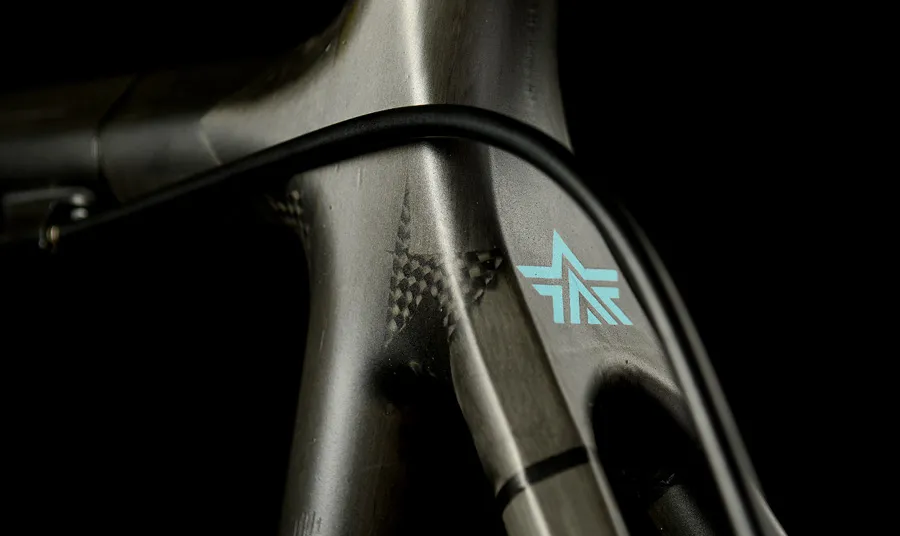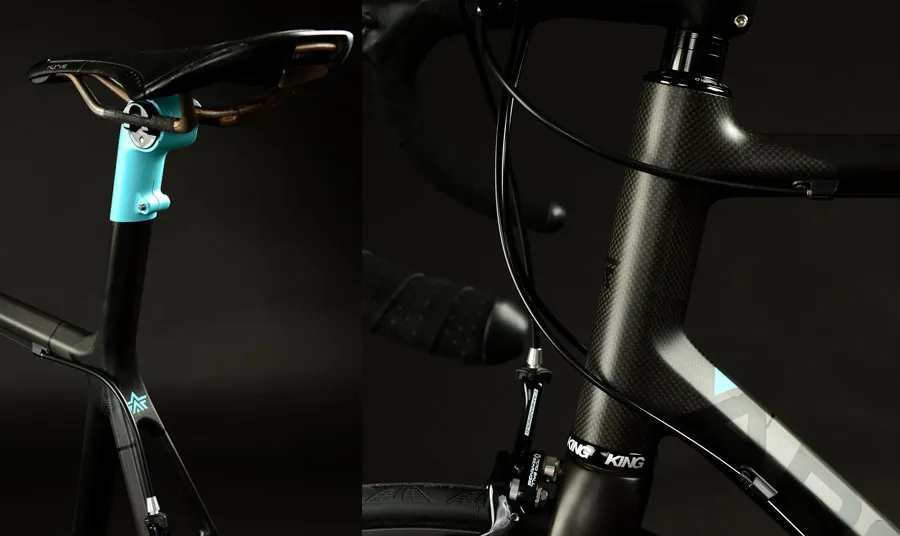In Greek mythology the Argonauts were the crew that accompanied Jason in his quest to Colchis to find the Golden Fleece – and for those who want the abridged version there is the now famous movie that includes the stop motion animated skeleton warriors.
Whether the mythology or the movie inspired Ben Farver in his own quest to design and build custom bicycles isn’t entirely known. But while Jason and his Argonauts used cold steel (or at least iron) to battle those skeletons, Farver cut his teeth working with steel to make high-end bicycle frames in Portland, Oregon.
Farver and his Argonauts learned that steel has its limitations, and has ventured into producing custom carbon fiber frames. Farver says that the frames he makes today couldn’t have been done were it not for his work with metal.
“The bulk of my experience comes from working with steel,” Farver told BikeRadar. “I started out making steel bikes because that was my favorite material to ride. Steel has such a dynamic ride quality - a feeling that isn't always noticeable right away, but sort of seeps into your bloodstream over time. I'm not sure where or when major manufacturers started going away from the positive ride characteristics of steel, but that was a mistake. ’Lighter’ and ‘stiffer’ is the language you hear a lot, but I think a bike with a great ride is a lot more than just light and stiff."
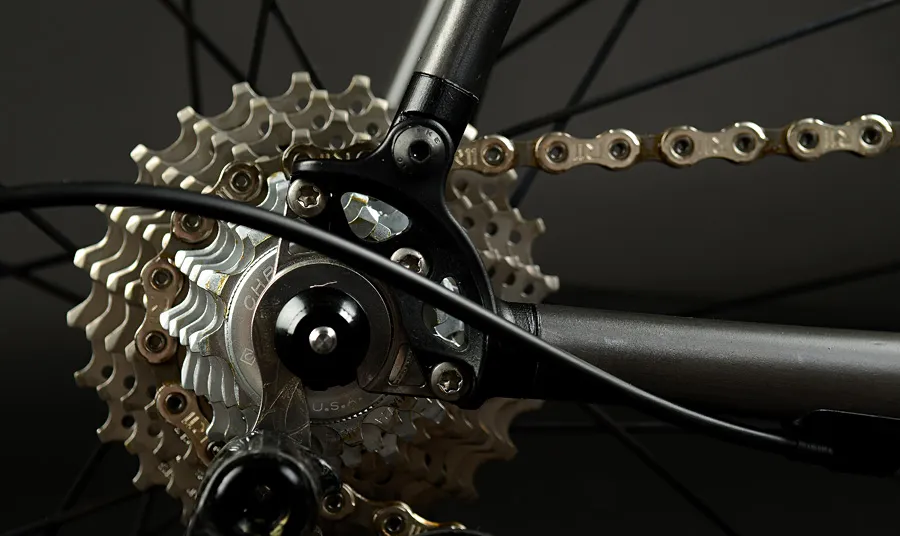
Argonaut works closely with Chris King
Having worked with steel is just one part of the equation. The other part is Farver’s experience riding numerous bikes over the years. This in turn allowed him to get a feel for various road bikes. He’s taken that experience back to the design process. Today, he offers not only custom geometry, but custom tubing and custom lay-ups to fine tune every element of the ride.
“Really knowing ride quality is probably the most useful thing I could bring to the table working with carbon fiber,” Farver emphasized. “The engineers I work with are great at breaking the material down to the individual fiber in terms of how the material will behave, but that's pointless if you don't know what it needs to do. In building the Argonaut frame, we did a structural analysis of all my favorite steel tubes, for instance the True Temper S3 downtube and Columbus XCR chainstays, and mimicked those tubes in carbon. This was our starting point, and from there we added stiffness in some directions and actually took it away in others. Sure, it's cool that carbon is light, but it's really cool that you can make it flex in different ways under different load directions."
For those who want a truly custom bike, Argonaut is certainly one answer. The turnaround time is longer than going to a shop and picking out a frame and components, but not by much.
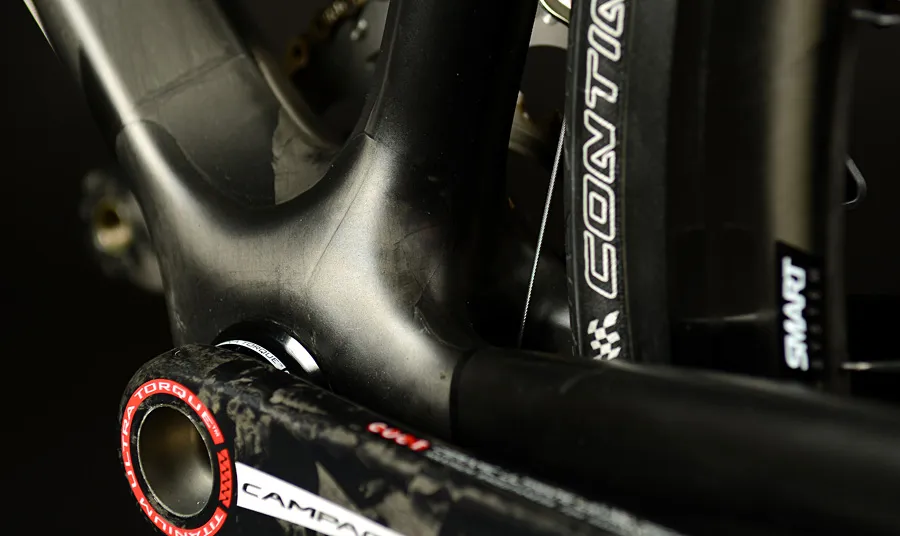
Not only is the geometry custom, but so too is the ride feel through custom lay-ups
To assemble a bike Farver says it takes about three days to make the frame parts, and another two to assemble the frame.
“Five working days total if you're really after it, but being I'm a one man show answering the phone and emails and designing frames and designing paint schemes, it usually takes about two weeks start to finish,” he noted, but considering that buyers get something unique that is a rather speedy turnaround time.
Part of the reason is that he takes an approach that isn’t that different from building a model kit.
“The frame is designed in a way that’s fairly simple to assemble. The value of the Argonaut frame lies in its design and the engineering of the parts themselves, not in how it’s assembled,” Farver explained. “In the future, more people than just me will be assembling frames without there being a danger in detracting from the frame’s quality, and for something to ultimately be successful I think that is really important.”
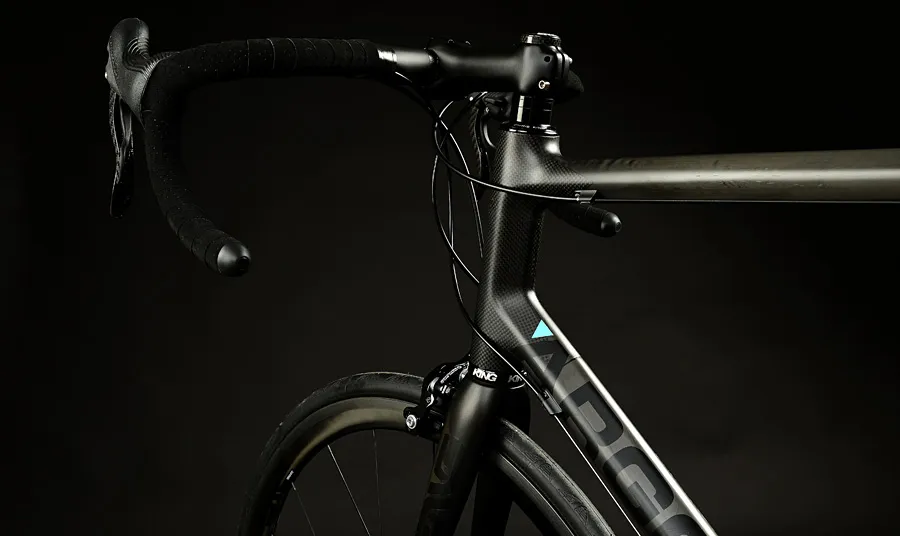
The Argonaut frameset uses Chris King's new tapered 1.125- to 1.25in headset and an ENVE 2.0 fork
Farver makes his bikes with a tube-to-tube construction, where each tube is bonded to the connecting joints. In addition to making custom bikes, he also makes much of the tooling he uses in the process.
“Most of the bikes I make that are custom aren't ‘unique snowflake’ custom,” Farver explained to BikeRadar. “They’re based on a bike a customer knows and loves, but wants the 2.0 version with maybe a little steeper head tube, shorter chain stays, and head tube that doesn't require 45mm of spacers.”
This ability to offer that level of custom fit is one advantage that carbon fiber brings from the design table to the assembly table. Of course as with any material there are downsides. Carbon fiber, while offering an excellent ride is one that isn’t exactly the greenest material.
“Dealing with carbon fiber dust is probably the biggest issue,” explained Farver, who noted that he uses a giant Denray downdraft table for cutting and sanding carbon. “It collects the dust and keeps it from getting into my other tools. You don't want to go snorting the stuff, but carbon dust is pretty benign. I wear a respirator too, but carbon is more of an irritant than health hazard.”
Moreover because he is still running a custom shop Farver and Argonaut aren’t exactly produced so much excess carbon fiber that it an issue.
“I can fit all the scrap, which comes from cutting the sections to length, in a pint glass,” he noted, but emphasized that a solutions for recycling need to be address. “Recycling and cutting down on the amount of material I'm putting in a landfill is absolutely important, I just haven't gotten to the scale to even look into. I should, though. That's a good idea.”
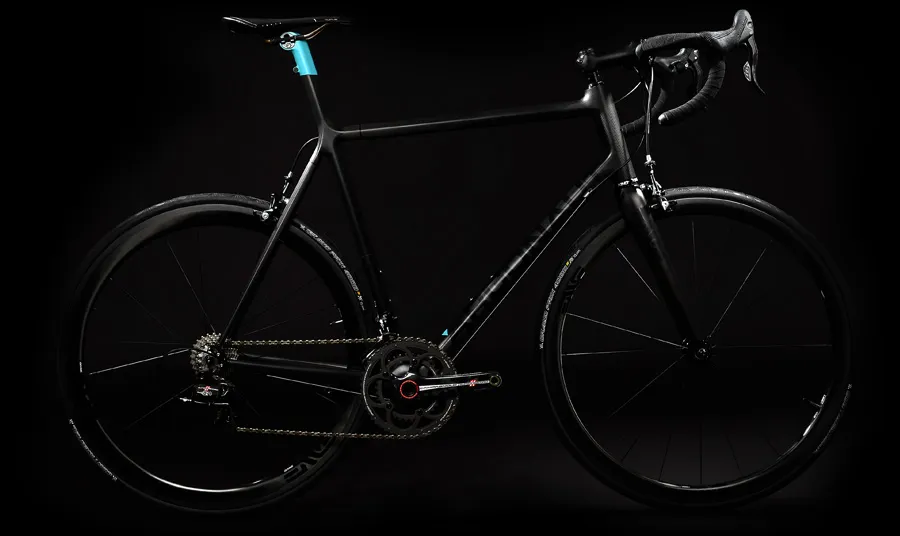
An Argonaut frame with custom geometry and a custom lay-up costs $6,500
